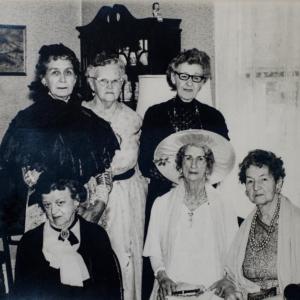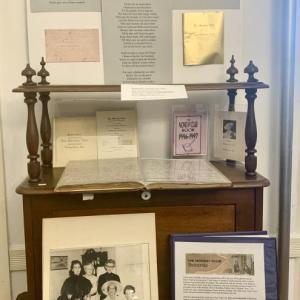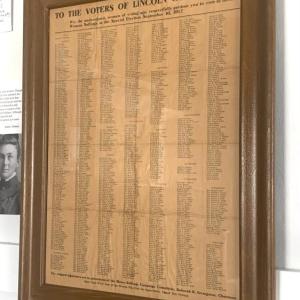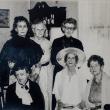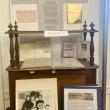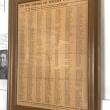Remembering The Monday Club
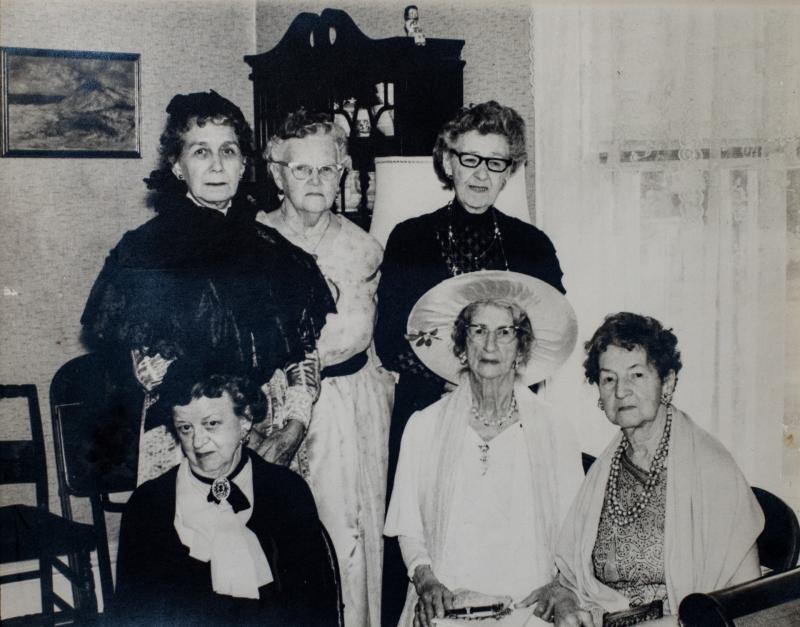 Members pose for the Monday Club's 75th anniversary. Back row, from left, Dorothy Abbott, Angie Dodge and Maude Gowen; front row, Alice Ortner, Grace Carlisle and Caroline Hendrick. Courtesy of Boothbay Region Historical Society
Members pose for the Monday Club's 75th anniversary. Back row, from left, Dorothy Abbott, Angie Dodge and Maude Gowen; front row, Alice Ortner, Grace Carlisle and Caroline Hendrick. Courtesy of Boothbay Region Historical Society
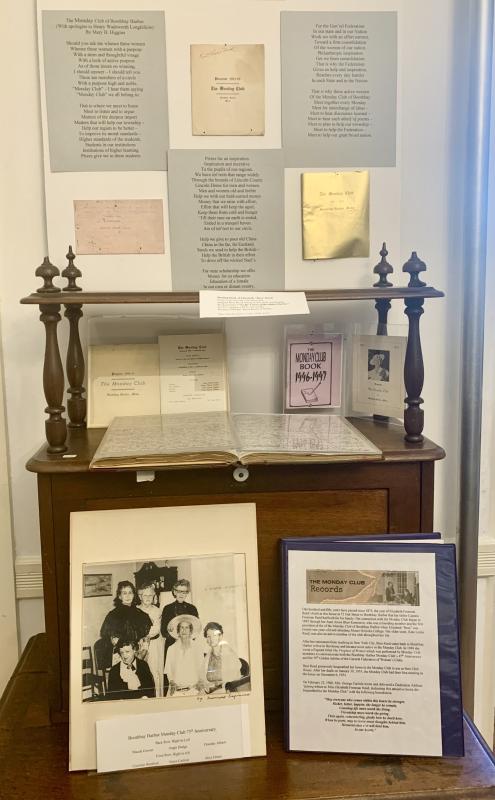 The Monday Club memorabilia is housed on Elizabeth Reed's writing desk. ISABELLE CURTIS/Boothbay Register
The Monday Club memorabilia is housed on Elizabeth Reed's writing desk. ISABELLE CURTIS/Boothbay Register
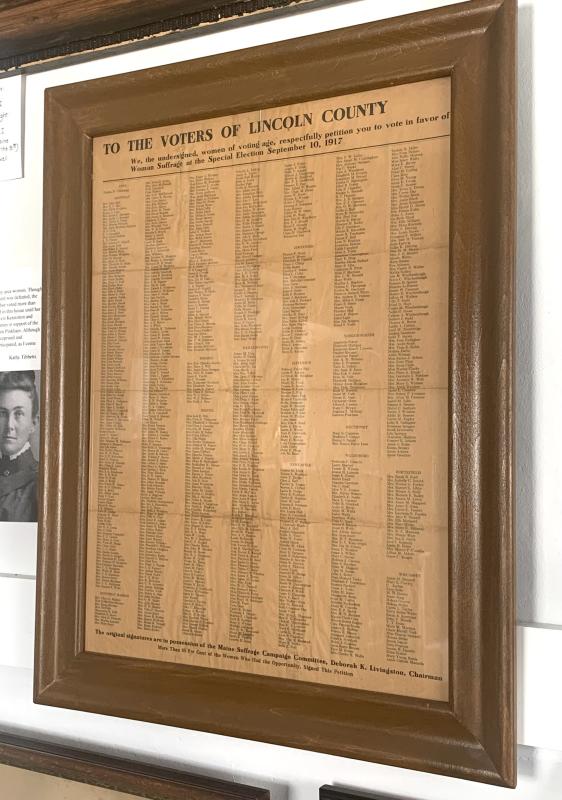 A 1917 petition signed by local women showing support for a suffrage referendum. ISABELLE CURTIS/Boothbay Register
A 1917 petition signed by local women showing support for a suffrage referendum. ISABELLE CURTIS/Boothbay Register
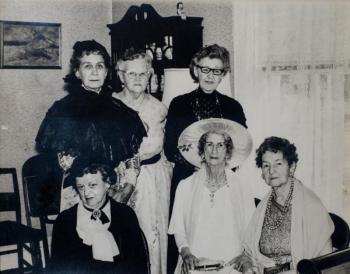 Members pose for the Monday Club's 75th anniversary. Back row, from left, Dorothy Abbott, Angie Dodge and Maude Gowen; front row, Alice Ortner, Grace Carlisle and Caroline Hendrick. Courtesy of Boothbay Region Historical Society
Members pose for the Monday Club's 75th anniversary. Back row, from left, Dorothy Abbott, Angie Dodge and Maude Gowen; front row, Alice Ortner, Grace Carlisle and Caroline Hendrick. Courtesy of Boothbay Region Historical Society
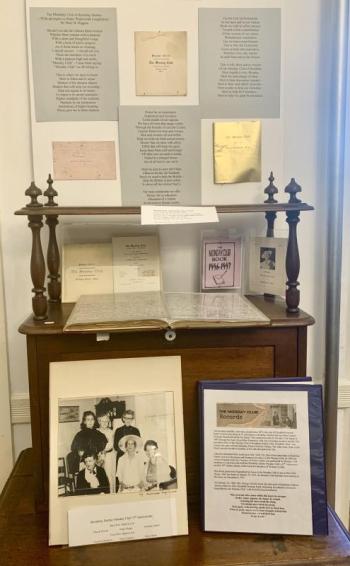 The Monday Club memorabilia is housed on Elizabeth Reed's writing desk. ISABELLE CURTIS/Boothbay Register
The Monday Club memorabilia is housed on Elizabeth Reed's writing desk. ISABELLE CURTIS/Boothbay Register
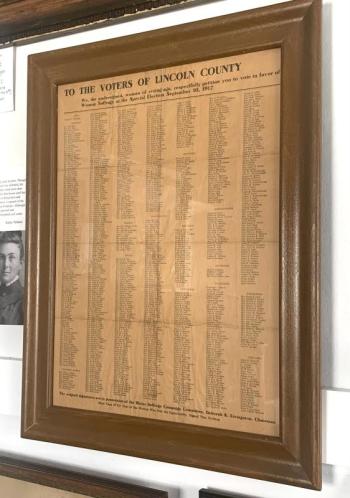 A 1917 petition signed by local women showing support for a suffrage referendum. ISABELLE CURTIS/Boothbay Register
A 1917 petition signed by local women showing support for a suffrage referendum. ISABELLE CURTIS/Boothbay Register
Despite the adage, not everyone hates Mondays. For over a hundred years, the start of the week was something to look forward to for the local women who gathered during the off-season to learn, educate and socialize at The Monday Club (1895 – 1998).
One of the founding members was Annie Kenniston, aunt to Elizabeth F. Reed. Reed is perhaps best known for owning the 1874 home Boothbay Region Historical Society (BRHS) resides in, but her history is also deeply intwined with the club. She was briefly president (1942-43), and her home served at the group's clubhouse for about 30 years after her death.
Their motto? “There is only one proof of ability - Action.”
Each week, a member would oversee topic research and present her findings to the group, long before the ease of modern travel, let alone the internet. One 1914-1915 program lists the year’s lectures, topics ranging from the literary (“Quotations from Wordsworth), historical (“Women’s Part in the World’s Progress”) and practical (“Little Questions of Every Day Life (and answers)."
The club also hosted notable speakers, including Frances Perkins, who was Franklin D. Roosevelt’s U.S. Secretary of Labor (1933-45), which made her the first female presidential cabinet member. Her ancestral homestead in Newcastle was designated a national monument last year.
“I think that concept that women would get together weekly, with that seriousness in terms of their commitment to learning and to educating each other ... it's pretty powerful,” said Julia O’Brien-Merrill, BRHS trustee.
While the early group wasn’t officially political, Reed was a suffragette. In 1917, she penned an “Appeal to the Voters of Boothbay Harbor” arguing why the men of the region should vote YES on a Maine referendum to extend voting rights to women (it’s unclear whether the letter was a speech or an article for the newspaper). One of her main arguments highlighted the “injustice” of the women of Boothbay Harbor paying more than $7,250 in taxes that past year without having any voice in town government. In other words, for the women, there was taxation without representation. Sound familiar?
Venturing upstairs one finds there is quite a bit of overlap between club members and the local women who signed the 1917 suffrage petition the museum keeps framed on its second floor. The referendum failed, and women wouldn't gain the vote until the 1920 ratification of the 19th amendment. For women of color, this right would be secured over the following decades.
Reed’s authorship wasn't limited to this instance. In 1940, she wrote “The Progress of Women Pageant,” a sweeping epic featuring a rotating cast of famous women from America's early history. Performed by club members, the play commemorated their 45th anniversary and the 50th golden jubilee of the General Federation of Women’s Clubs (which is still in operation).
For O’Brien-Merrill, the club's actions are even more special due to the records they kept, otherwise, they could have easily been lost in the historical record.
For more information, check out the collections at Boothbay Region Historical Society.

